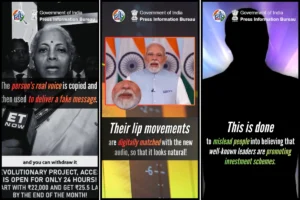
Switzerland’s State Secretary for Economic Affairs, Helene Budliger, has expressed strong optimism about investing in India, citing the European Free Trade Association’s (EFTA) long-term commitment to the country.
Speaking to Moneycontrol, Budliger highlighted that the bloc plans to invest $100 billion over the next 15 years, potentially generating one million direct jobs in India.
The announcement comes in the wake of the India-EFTA Trade and Economic Partnership Agreement (TEPA), which entered into force on October 1, 2025. The pact brings together Iceland, Liechtenstein, Norway, and Switzerland, formalising a framework for deeper trade, investment, and economic cooperation.
“For EFTA, the advantage is obvious – India is a nation with 1.4 billion people and it is growing fast. We see India as a promising market,” Budliger said.
She recalled a discussion with India’s Commerce Minister Piyush Goyal regarding the ’30-30-30′ vision, which foresees India as a $30-plus trillion economy in 30 years, with the average population age remaining around 30.
Budliger highlighted that the trade agreement will boost Swiss exports, particularly in the consumer goods sector.
“The trade deal benefits Swiss consumer goods, from watches to chocolates. You’ll see more Swiss companies selling their products in India now. For example, a health-focused shoe brand is entering the Indian market,” she noted.
Expanding Opportunities in Manufacturing and Services
Swiss companies in the MEM sector (mechanical, electrical, and mechanical engineering industries) have also shown interest in selling and eventually manufacturing in India.
Budliger added, “The Swiss private sector is bullish on investing in India. Both our economies are service-oriented, and the deal will allow Indian high-tech companies to offer their services in Switzerland.”
Switzerland is currently India’s largest trading partner within the EFTA bloc, while trade volumes with Iceland, Norway, and Liechtenstein remain limited.
India has offered EFTA access to 82.7% of tariff lines, covering over 95% of EFTA exports. Sensitive sectors, including pharmaceuticals, medical devices, processed foods, dairy, soya, coal, and certain agricultural products, remain protected from duty cuts.
Under the free-trade agreement, Indian consumers will benefit from lower prices on Swiss products such as watches, chocolates, biscuits, wines, apparel, and clocks, as India phases out customs duties over ten years.
Tariffs on machinery, medical equipment, fish oils, and smartphones will also gradually decline, enabling greater trade and investment flows.
The India-EFTA TEPA agreement is expected to strengthen bilateral trade, attract investment, and create employment opportunities.
By facilitating Swiss investment and enabling Indian high-tech services to enter European markets, the pact enhances economic collaboration and fosters long-term growth for both sides.
Also Read: India-Russia Relations ‘Special And Trustworthy’, Says Putin Before December Summit
To read more such news, download Bharat Express news apps





















